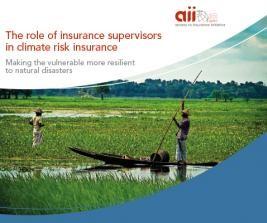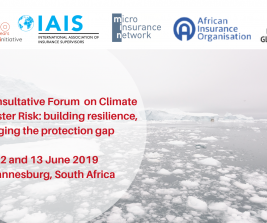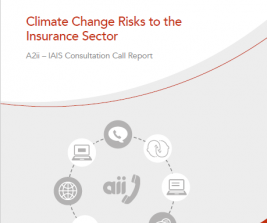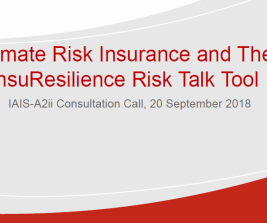Climate Risk/Disaster Insurance
Categories
Climate Risk/Disaster Insurance
Climate Risk/Disaster Insurance
20 posts | Page 2 of 4
Filter by
ChooseClose

Reports, Climate Risk/Disaster Insurance, Emerging Topics, Global | 2019
Insurance supervisors have both good reason and the means to take active steps to promote resilience against climate risks and natural disasters, particularly amongst the low-income and underserved

Photo & Video, Presentations, Climate Risk/Disaster Insurance, Emerging Topics, Africa | 2019
Poor and vulnerable people in the developing world are affected most by natural disasters. They suffer disproportionately due to their higher vulnerability and exposure and lower ability to cope and

Presentations, Reports, Climate Risk/Disaster Insurance, Emerging Topics, Latin America & the Caribbean | 2019
Poor and vulnerable people in emerging markets and developing countries are affected most by natural disasters. They suffer disproportionately due to their higher vulnerability and exposure and lower

Presentations, Reports, Climate Risk/Disaster Insurance, Emerging Topics, Global | 2018
Supervisors play an important role in addressing risks and challenges that climate change poses on the insurance sector. This call took a closer look at the IAIS and Sustainable Insurance Forum (SIF)

Presentations, Climate Risk/Disaster Insurance, Emerging Topics, Global | 2018
Extreme weather events continue to undermine the resilience of low income countries in particular, mainly due to a limited capacity to recover and absorb losses associated with climatic hazards. This



